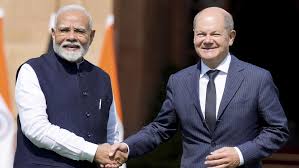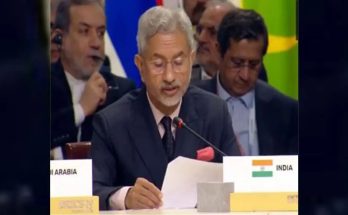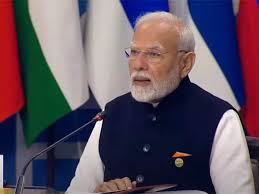Seeking a concrete plan on a permanent solution to food security, a mechanism to safeguard the interests of domestic farmers from sudden spurts in imports and the conclusion of the Doha round, India will take a firm stand against the pressure tactics of the developed world at the upcoming meeting of the World Trade Organisation (WTO) at Nairobi.
Voicing India’s frustration over the lack of progress and twisted arguments used by some to bury the Doha round, Commerce Minister Nirmala Sitharaman said: “We are not raising the Doha issue because it was raised in 2001, but we are raising it because even today we don’t see a work plan on such issues. We don’t see a work plan on even many of the things agreed upon in the last ministerial in Bali in 2013. So if the argument against raising the Doha round is built on the premise that the issues are more than a decade old, we want to point at the declaration of the Bali ministerial meetings, which ought to be worked upon.”
A panel of facilitators at the WTO is reported to have set aside a demand from India and a majority of developing and poor countries to reaffirm the commitment to continue negotiations on all outstanding issues of the Doha Development Agenda in the declaration to be adopted at Nairobi. India’s latest move signals a stormy session at Nairobi ministerial. The final draft for the Nairobi ministerial, however, is yet to be completed.
Laying out India’s strategy before the Nairobi ministerial from December 15 to 18, Ms Sitharaman said: “Our efforts are to ensure that unfulfilled elements of the Doha round find a place in the final declaration, work plans on each of them are given and differential treatment to India vis-a-vis other developing countries is not meted out and that we have enough tools in our hands to protect ourselves from the sudden surge in imports.”
Regarding the question of developed countries’ insistence that the mandate of the Nairobi ministerial be expanded to include new issues to reflect today’s reality in trade, Ms Sitharaman said India is fine with discussions initiated on some of the issues such as e-commerce, but there won’t be any “binding commitment on them” nor should such issues be a part of the draft ministerial declaration.
India would also like the negotiations on services, which relates to the free movement of professionals, to be discussed.
After the Bali ministerial, India managed to get a permanent peace clause against its stock holding of commodities for the public distribution system for its support to the trade facilitation agreement (TFA), which the developed countries had pushed hard for.
The peace clause would mean no WTO member can drag India to the dispute panel for offering more product-specific support to farmers through procurement of grains than stipulated under the WTO until a permanent solution to the issue is found. As per the norms, the amount of subsidy should not exceed 10 percent of the value of production of a commodity and in India’s case, this ceiling was breached in rice, a few members have alleged.
A major hurdle for India is that the WTO’s appellate body had ruled in 2000 that product-specific price support could be determined assuming subsidy persists on the entire crop output.
India would be taking a firm stand on these issues at the ministerial meet in Nairobi. India has been accused in the past of stalling progress in the WTO ministerial meets by the developed countries.
Author Profile
- India Writes Network (www.indiawrites.org) is an emerging think tank and a media-publishing company focused on international affairs & the India Story. Centre for Global India Insights is the research arm of India Writes Network. To subscribe to India and the World, write to editor@indiawrites.org. A venture of TGII Media Private Limited, a leading media, publishing and consultancy company, IWN has carved a niche for balanced and exhaustive reporting and analysis of international affairs. Eminent personalities, politicians, diplomats, authors, strategy gurus and news-makers have contributed to India Writes Network, as also “India and the World,” a magazine focused on global affairs.
Latest entries
 Business with IndiaOctober 25, 2024Modi’s new mantra for blending India’s Dynamism with Germany’s Precision
Business with IndiaOctober 25, 2024Modi’s new mantra for blending India’s Dynamism with Germany’s Precision China ConnectOctober 23, 2024“Our Diversity and Belief in a Multipolar World Are Our Strengths”: PM Modi at BRICS Summit
China ConnectOctober 23, 2024“Our Diversity and Belief in a Multipolar World Are Our Strengths”: PM Modi at BRICS Summit DiplomacyOctober 23, 2024“BRICS: A Beacon of Hope for Global Unity and Reforms “
DiplomacyOctober 23, 2024“BRICS: A Beacon of Hope for Global Unity and Reforms “ DiplomacyOctober 23, 2024Deepening Ties Amidst Global Turmoil: PM Modi Meets Iranian President at BRICS Summit
DiplomacyOctober 23, 2024Deepening Ties Amidst Global Turmoil: PM Modi Meets Iranian President at BRICS Summit







